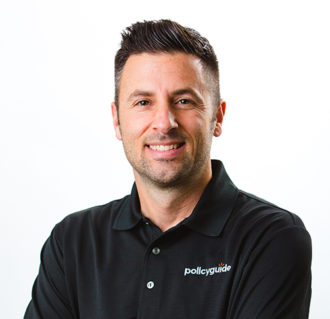How to Stop Medicare Scam Calls
If you’re anything like me, you hate your cell phone ringing all day with different marketing pitches, sales, and scams. It’s getting to the point where I seldom even answer my phone unless I know exactly who it is.
Hi. My name is Mark Prip. I’ve been helping people find the right Medicare plan for over 15 years. Today, I want to talk about Medicare scam calls and how to stop them. Unfortunately, stopping telemarketing calls is very difficult in today’s world.
It seems that scammers and telemarketers are always coming up with new ways to:
- Spoof their caller ID
- Say different things when you answer
- Leave different messages that cause confusion
I’ll give you some tips and ideas on how to get on the “Do Not Call” registration to stop these calls. And if the calls still won’t stop – I’ll give you some guidance on what most scammers are doing with Medicare beneficiaries.
Important Disclaimer:
In most cases, Medicare will not call you directly. However, there are two scenarios in which the call you’re getting is probably not a scam call.
In both scenarios, the caller already has your information and will not ask you for more personal details.
Scenario #1:
- You’ve already called 1-800-MEDICARE and talked to someone, or you’ve left a message asking for a callback.
Scenario #2:
- If you’ve already enrolled in a Medicare health or drug plan – and the provider of your plan is calling.
Example: If you enrolled with Aetna, Blue Cross, or Cigna, the plan provider would call you.
Any other types of Medicare calls are usually scams or sales calls. Again, they can be scams, but they can also be insurance agent sales calls trying to sell you a Medicare plan.
How to Stop Scam Calls
Here are some ideas on how to avoid these scam calls:
- Add your phone number to the “Do Not Call Registry.” It’s free to use and managed by the Federal Trade Commission. I’ve linked their site below.
- File a complaint with the Federal Trade Commission, and they will take legal action against the offenders.
-
How Do I Identify a Scam Call?
If an offer seems too good to be true or they ask you for personal information, it’s usually a scam. Scammers also use high-pressure sales tactics and demand you act quickly, and they usually use fear.
Most Common Medicare Scam Calls

#1. The caller promotes free medical equipment, such as diabetic meters and back braces.
#2. The caller claims that Medicare owes you money and asks for your bank account details to process the refund.
Important: do not give your bank account information to anyone over the phone unless it’s someone helping you enroll in a plan AND you’ve verified the legitimacy of the caller or the agent you’re working with.
#3. Another common one is the caller claims that your Medicare benefits will be canceled unless you provide personal details to verify your plan. That is not true.
#4. The caller promises to provide a new secure Medicare card and asks you to provide your identity details.
#5. The caller poses as a healthcare provider, offering a discount card on drugs, equipment, or services.
#6. Here’s a funny one: a robotic voice claiming to be Becky from Medicare offers a cancer screening test and asks for personal detail verification.
Already Been Scammed?
If you think you’ve already been scammed, here are some tips on what to do:
- Contact your bank and credit card companies to report the issue.
- Cancel any potentially compromised accounts.
- File a complaint with the Federal Trade Commission.
- Inform the Medicare Fraud Department directly.
Again, I will provide links to all the different resources in the description below should you need to use them.
Bottom Line
So the bottom line is this: It is very hard to stop telemarketers today, but you can be equipped and prepared to know what to do when you get these calls.
Again, I don’t know that my bank ever contacted me and asked for valid personal information. It’s usually done through mail correspondence. Medicare generally does not call people, just like the IRS.
So, if you feel pressured or threatened to lose something if you don’t provide information – those are all big red flags.
Do not give out personal information over the phone unless it is through a trusted health plan or agent with whom you have an established relationship or who is a credible source that keeps all of your information confidential.
I hope this helps, gives you some ideas, and arms you to defend yourself when the calls never stop coming. Thanks!
Reources: National Do Not Call Registry | Department of Health and Human Services | Federal Trade Commission




